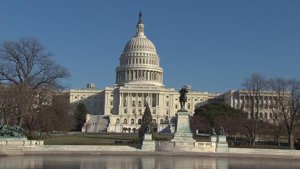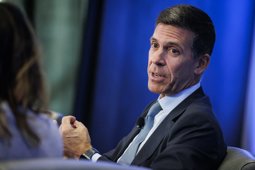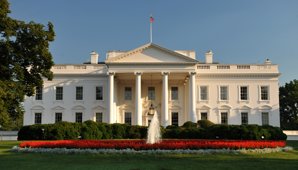
Jayapal, Bass Challenge White House on ICE, Immigration Enforcement
Democrats condemn ICE enforcement as "terrorizing"; White House defends agents as violence and political tensions surge.
Jayapal Defends Harsh Criticism of ICE
Democratic lawmakers and city officials are locked in a growing confrontation with the White House over federal immigration enforcement, with Rep. Pramila Jayapal, D-Wash., and Los Angeles Mayor Karen Bass leading the criticism of recent Immigration and Customs Enforcement (ICE) operations. The latest clash follows public statements by Jayapal calling ICE a "terrorist force" and Bass urging federal authorities to "go home" as protests erupt across Los Angeles.
In an interview on CNN, Jayapal stood by her description of ICE, citing reports of masked, unidentified agents detaining people on city streets without oversight or accountability. “I never in a million years thought that that is something that I would see here in America,” Jayapal said, adding, “It is the administration that has to apologize to U.S. citizens… people with legal statuses across the country who are getting swept up, people who have been here for 20 years and committed no crimes, getting swept up by masked men who are kidnaping them and deporting them.”
Jayapal accused ICE of using unconstitutional and illegal tactics, describing their enforcement actions as “absolutely terrorizing people, including small businesses and farmers.” She recounted discussions with business owners in Spokane who reported steep drops in sales due to widespread fear and uncertainty. Jayapal insisted, “The White House owes an apology to the American people for what they are doing.”
White House, ICE Defend Federal Agents Amid Surge in Violence
White House spokesperson Abigail Jackson responded forcefully, calling Jayapal’s remarks “disgusting” and asserting that ICE officers “are simply doing their jobs and enforcing federal immigration law, with the utmost professionalism.” Jackson cited a 500% increase in assaults against ICE agents this year, which she attributed to “dangerous smears by deranged leftists like Jayapal.” She warned that further criticism could fuel more attacks and obstruct law enforcement.
Former ICE acting director Tom Homan echoed these concerns, warning that a new app, ICEBlock, which tracks ICE agents’ operations, puts agents at greater risk. “Assault against ICE is up over 500%,” Homan said, cautioning that targeted attacks and protests threaten the safety of officers and could escalate further.
Los Angeles Mayor Faces Off With ICE
Meanwhile, Los Angeles Mayor Karen Bass has become a vocal opponent of federal immigration sweeps in her city, publicly calling for ICE to cease operations and “go home.” In a press conference, Bass criticized both ICE raids and the use of National Guard troops in response to civil unrest sparked by immigration enforcement. “ICE intervened as a pretext to federalize the National Guard,” she said, claiming that their actions provoked unrest and fear across Los Angeles.
ICE officials dismissed Bass’s demands, stating that the agency “isn’t going anywhere and will continue to do what Mayor Bass has utterly failed to do—protect the citizens of Los Angeles.” They referenced Bass’s controversial trip to Ghana during a period of wildfires in Los Angeles, highlighting ongoing political tensions between city and federal authorities.
As protests and riots continue in Los Angeles, sparked by reports of ICE conducting sweeps in public spaces and even emergency rooms, the divide between local and federal leaders has only grown sharper. President Donald Trump’s deployment of the National Guard and U.S. Marines in the city has further polarized the debate, with Bass alleging that these measures “target our own citizens.”
Immigration Enforcement at the Center of National Debate
The conflict between the White House and Democratic leaders over ICE’s conduct is fueling a broader national debate about immigration, civil liberties, and public safety. With violence against ICE agents rising and public protests growing, both sides warn of escalating consequences if common ground cannot be found. As calls for accountability intensify and policy disputes deepen, the nation’s approach to immigration enforcement remains in a state of high tension and uncertainty.






